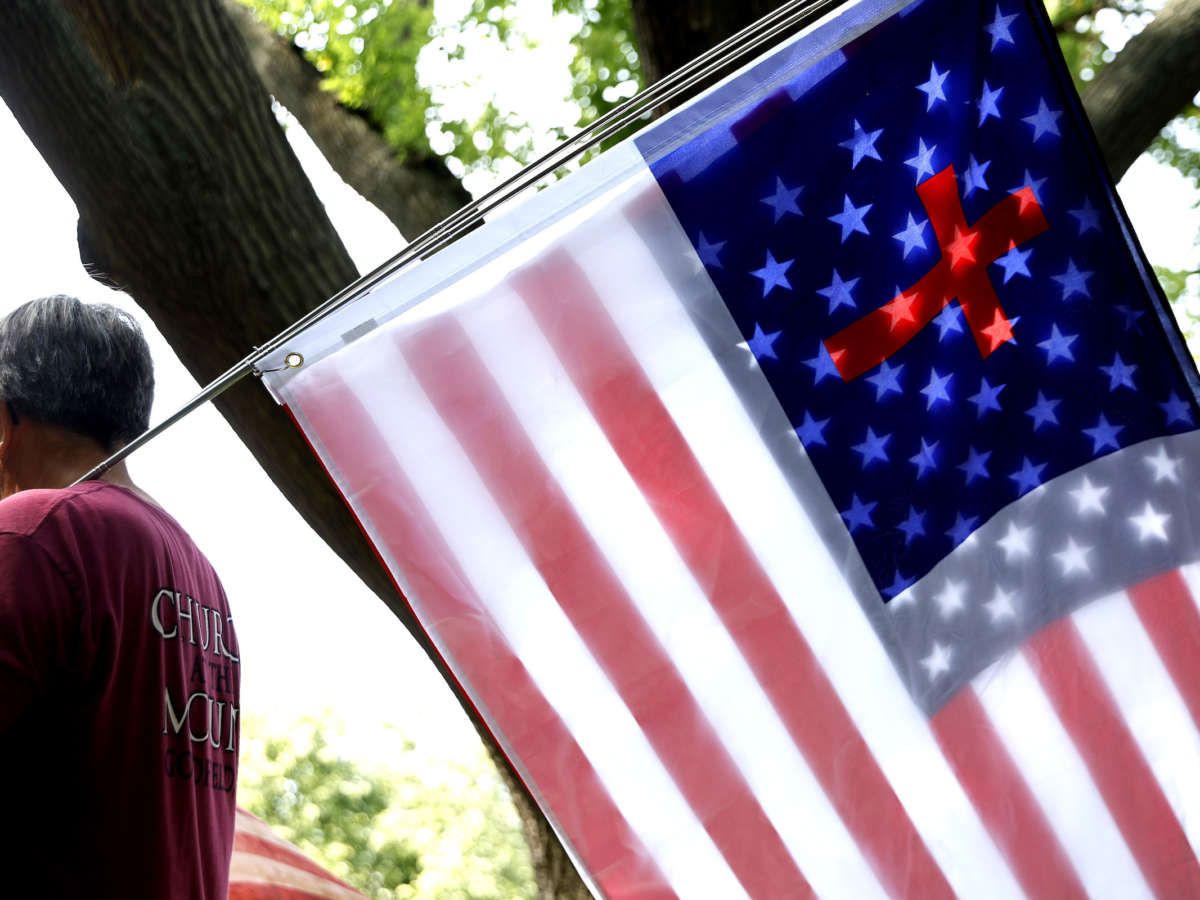An alarming new poll finds that a comfortable majority of Republicans think that the U.S. should be declared a Christian nation in a show that GOP leaders’ propaganda campaign to normalize and advance fascism has caught hold among the party electorate.
The poll, conducted by the University of Maryland in May and published by Politico on Wednesday, finds that 61 percent of Republicans favor declaring the U.S. a Christian nation, while 39 percent oppose. Among Democrats, only 17 percent favor the idea, while only 38 percent of respondents expressed support for the idea overall.
This is despite the fact that declaring Christianity the national religion is blatantly unconstitutional; the First Amendment states that U.S. lawmakers “shall make no law respecting an establishment of religion.”
Most of the poll’s nearly 2,100 respondents acknowledged this, though Republicans did so at a much lower rate than others, at 57 percent compared to 70 percent of all respondents. Still, it is striking that so many Republicans say that they favor such a move despite its unconstitutionality, especially for a party that, before Donald Trump, largely viewed itself as the primary supporter of the Constitution (even if that has never really been true, either).
That there is such a large amount of support on the right for Christian nationalism is disquieting. Christian nationalism is a dangerous ideology closely associated with — or even identical to — white supremacy, corporate oligarchy and fascism; a modern example of religious nationalism is Zionism and Israel’s quest to violently suppress Palestinians and strip them of their humanity.
The ideology has been pushed by Trump and his allies in recent years and has even been openly embraced by the party’s most extremist members, including white nationalist Rep. Marjorie Taylor Greene (R-Georgia). Modern Christian nationalists position people of color and LGBTQ people as enemies of civil society, variously asserting that social justice movements are attempts to end Christian “heritage” and the white race.
Indeed, the poll found that those who support Christian nationalism are highly likely to harbor “white grievance” over their status in the U.S. About 59 percent of those who say that white people are facing increased levels of discrimination — not true by nearly any metric — say that the U.S. should be a Christian nation.
Research has found that identifying with Christian nationalism is highly correlated with support for political violence — and, indeed, horrific recent events demonstrate the rise of the Christian nationalist movement on the right.
The racist mass shooter who opened fire in a grocery store in a majority-Black neighborhood in Buffalo, New York, in May, killing ten people and injuring three others, had links to Christian nationalism, experts say. Christian nationalists also showed up in droves to the anti-democratic attack on the Capitol on January 6, citing God and Christianity as reasons for their attempt to violently overturn the 2020 election.
The ideology is also at least partially responsible for recent attacks on peoples’ rights. Anti-LGBTQ laws and sentiments have frequently been pushed in the name of Christianity, like in a recent lawsuit by Christian plaintiffs to allow employers to deny coverage of medication for HIV, which disproportionately affects gay and bisexual men, in their health insurance plans.
And, of course, the overturn of abortion protections under Roe v. Wade was a major triumph of Christian nationalism this summer, stripping hundreds of millions of people of the guarantee that they can choose whether or not to be pregnant and putting millions of lives in danger.
For those alarmed by the rise of Christian nationalism, there is a small bit of solace, however. The poll finds that it is much more common for older Republicans to want the U.S. to be declared a Christian nation, at 71 and 72 percent among the silent generation and baby boomers, respectively. Among Generation X, millennials and Generation Z, about 50 percent of respondents say they favor Christian nationalism.


